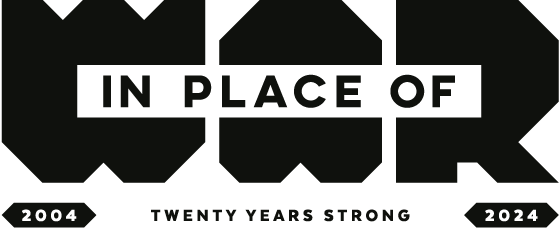pillars
We know that local people are the experts of their own communities, and that they need to guide the work to make the change they want to see. To this end, we collaborate with the international change-maker network to support work that is already happening in areas affected by conflict, social injustice and the climate crisis, or where local people have identified a need.
IN PLACE OF…
In Place of War works with communities who are affected by: War / Post-war / Gang-war / Political oppression.
Conflict and protracted crisis affects over 2 billion people globally, and over 600 million young people live in fragile and conflict affected communities. Today, there are over 110 armed conflicts across the world. Some of them you will know as they make the headlines, whilst others receive little or no media attention. Some of them involve international actors, others are civil conflicts within a country. Some of them are recent conflicts, some of them have lasted for over 50 years.
Whilst the causes and scope of armed conflict may vary from place to place, the consequences of conflict on local populations are similar. In conflict, post-conflict, and violence-affected areas, local people face challenges of discrimination, restricted livelihoods, a lack of opportunities, and a lack of access to safe spaces and basic infrastructure, hindering their ability to thrive and contribute to long-term development and peace.
IN PLACE OF…
Social injustice is the unequal treatment of certain groups of people that prevails in all societies. People with disabilities, refugees, young carers, ethnic minority communities and people from working class backgrounds are most affected by unfair and unequal treatment. Thus, a new area of focus for In Place of War is on nurturing emerging young civic leaders who are using the arts to advocate for social justice and the emancipation of groups who have been historically discriminated against, or marginalised by structures and systems in society.
IN PLACE OF…
Each year, the urgency of climate change becomes more evident in the places that we work and for communities who are already impacted by conflict. As parts of the planet become impossible to live in, the number of climate migrants will increase, with more than 200 million people likely to be displaced around the world by 2030. This will create more conflict as people scramble for limited resources. Understanding the power of the arts to galvanise people and inspire change, our work has organically led to the development of a new area of focus for In Place of War around climate, creativity and conflict. We are building a four-year programme of activities using music as a mechanism to engage a wider audience to inspire action around the climate crisis, with a focus on climate justice.







